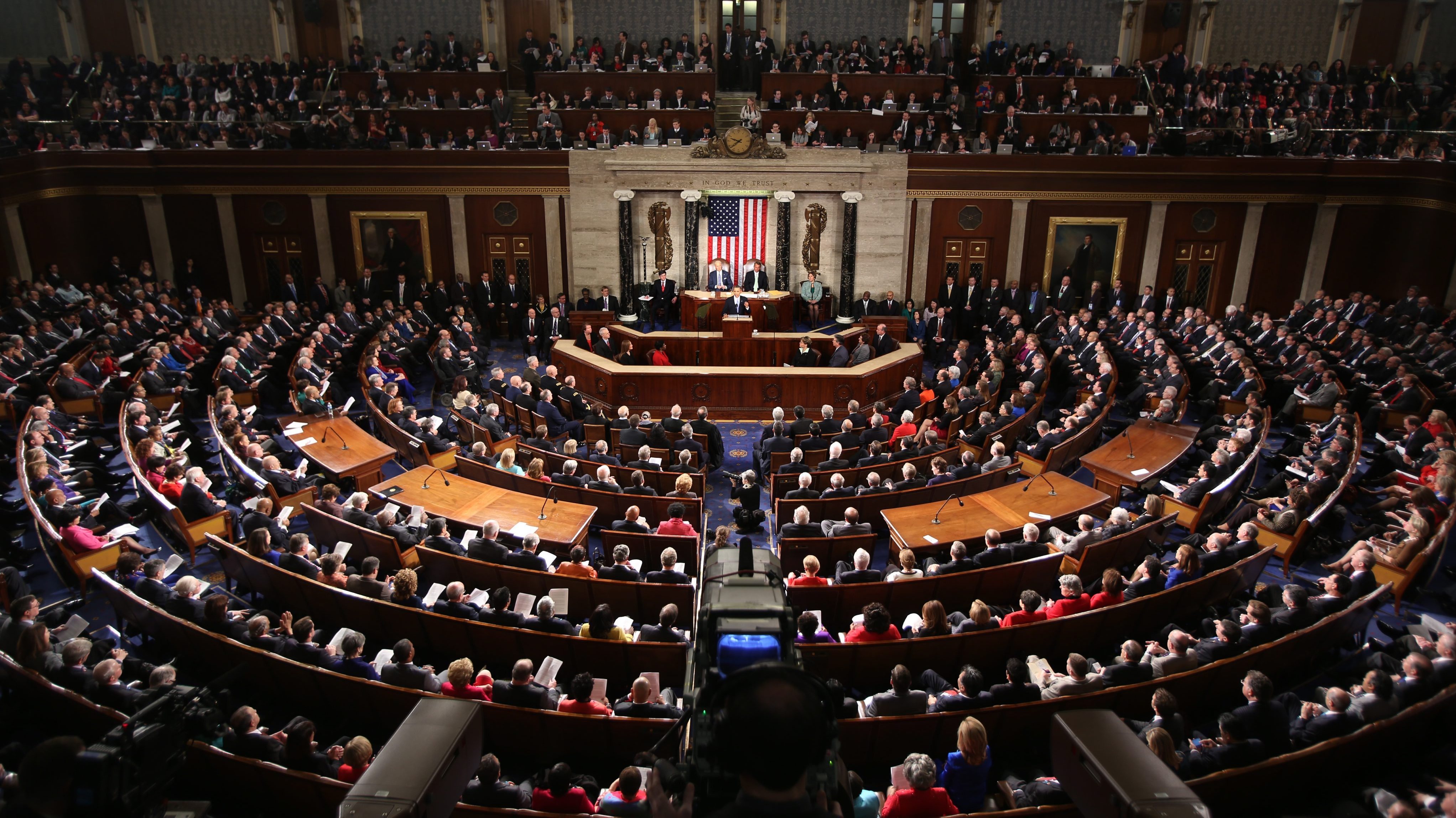
On 29 October 2019, the US House of Representatives adopted two extremely hostile resolutions concerning Turkey. One of the resolutions[1] concerns allegations of genocide against Turkey frequently put forth by Armenians, while the other resolution calls for sanctions against Turkey due to Turkey’s Peace Spring Operation in northern Syria meant to push back terrorist groups (PKK’s Syrian branch and DAESH) and create a safe zone in Turkey’s southern borders. In this article, we will focus on the genocide resolution.
The resolution was originally submitted to the attention of the House of Representatives on 8 April 2019 by Adam Schiff (the Democratic Party representative of the state of California), who is well-known for frequently catering to the interests of the Turcophobic Armenian diaspora in the US. A resolution with the exact same content was submitted to the US Senate the next day. The House and Senate resolutions contain all the cliché genocide accusations meant to portray Turks as “genocidal maniacs”, meaning they contain nothing new in terms of the other parliamentary resolutions that have been passed against Turkey throughout the years. The baseless and propagandist nature of these accusations has been dealt with multiple times in AVİM’s previous writings.[2] The House resolution was passed with an overwhelming majority on 29 October, while it is unknown whether the Senate resolution will be put to vote.
Rather than the content of this cliché resolution, what is more important is its context and the way in which it has been adopted.
1) The resolution was adopted at time of markedly strained Turkish-American relations. A worrying portion of American politicians and media have demonstrated an almost complete disregard for Turkey’s legitimate security concerns in Syria and have shown a bizarre ignorance concerning the true nature of US-backed militant Kurdish groups in the country (which have been identified to be PKK’s branch in Syria).[3] When Turkey launched its Peace Spring Operation in 9 October, there were hysterical reactions from American politicians and media outlets against Turkey; one major American media outlet was even exposed for using unrelated video footage to portray Turkey as if it was using indiscriminate violence.[4] It seems that in pursuit of defending its national interests, Turkey has unintentionally ruined whatever self-centered plans that certain elements in American politics had concerning Syria. It further seems that these elements were expecting Turkey to resign itself to its “fate” while the situation in Syria spiraled out of control. When Turkey launched its operation, calls began to be made by American politicians and media outlets to “punish” Turkey as it somehow “misbehaved”. The House genocide resolution was paired with the sanctions resolution and adopted under such circumstances. However, the adoption or proposals for the adoption of such a resolution is not a new phenomenon. In one of our previous articles, we made the following observation:
“Using the genocide allegations as a form of punishment is not limited to the Netherlands. It has been done in numerous occasions in other countries as well. The processes in various countries that lead to the submission of motions or the adoption of resolutions share a common, simple pattern: Country X begins to experience political tensions with Turkey, and the MPs of Country X mysteriously develop definitive knowledge about the complex and controversial 1915 events and feel morally compelled to pass judgement on the said events. This pattern was observed, for example, in Germany, Russia, Israel, and Egypt.”[5]
As such, the members of the US House of Representatives have simply followed the frivolous and amateurish conduct of the members of other parliaments who have adopted or threatened to adopt genocide resolutions. Such conduct is frivolous in the sense that the said MPs are willing distort a serious and complex historical issue (in this case, the 1915 events) simply to spite a country they do not like at that moment. Such conduct is amateurish in the sense that, from the timing of the genocide resolutions, it is obvious that “the [resolutions] have, in reality, nothing to do with historical justice or the acknowledgment of Armenians’ pain, but rather, everything to do to with scoring political points and engaging in verbal harassment against Turkey.”[6] In light of this, it becomes clear that there is no sincerity towards the thoughts and feelings of the Armenians. The words of Steve Cohen, the Democratic Party representative of the US state of Tennessee, perfectly encapsulates this frivolous and amateurish conduct: “I’ve always opposed the Armenian resolution, and I voted for it this week. I voted for it because Turkey doesn’t seem to respect the United States at all.”[7]
2) This point ties in with what was said in the first point; the House resolution is not really about the Armenians. Yes, the groundwork for the resolution was laid through years of intense lobbying by Armenian groups and the members of the US Congress who cater to their interests. The adoption of this resolution may to a certain extent be attributed as a success for such groups. However, the catalyst for the adoption of this resolution was not the Armenians themselves, but the anger American politicians felt towards Turkey for its refusal to play by US’ rules in Syria. As such, if it was not the Armenians, these politicians would have used another controversial topic in an attempt harass Turkey. Since Diaspora Armenians have to a major extent turned themselves into a single-issue group (the recognition of the claimed genocide), they are being constantly exploited by countries who are having troubles in their bilateral relations with Turkey. Whether or not diaspora Armenians are aware of this (or aware and do not care), they are casting a shadow on their centuries-old rich history and culture due to their obsessions. The result of this is that diaspora Armenians are allowing their value to be determined only by their usefulness in the harassment of Turkey.
3) Just like other parliamentary genocide resolutions, the one adopted by the US House of Representatives is also non-binding in nature and is merely the statement of opinion of politicians who are uninformed about the complex 1915 events. However, the portion of those who voted yes for the resolution and the day of the resolution was adopted are important. The resolution was adopted with 405 yes votes, 11 no votes, and 3 abstentions (out of total of 435 voting members). The resolution (along with the other resolution calling for sanctions) was adopted on the Republic Day of Turkey (29 October), and since Turkey and US have been NATO allies for about 70 years now, it is highly unlikely that the members of the House of Representatives were unaware of the significance of 29 October for Turkey. These two points demonstrate the sheer scale of the anger and disrespect of American politicians towards Turkey. It should be noted that the genocide resolution, passed under such circumstances, could be used as the groundwork for the adoption of a vindictive and discriminatory act of US Congress that penalizes on a federal scale the rejection of genocide claims of the Armenians. In such a case, Turkish Americans must be prepared take legal action to defend their dignity and rights, a process which may have to go all the way to the US Supreme Court.
Understandably both the Turkish government and the Turkish parliament have reacted harshly towards the US House of Representatives frivolous and amateurish conduct. While the US Ambassador to Turkey was summoned to express Turkey’s indignation for the resolution, the following statement was released by the Ministry of Foreign Affairs of Turkey:
“We reject the resolution H.Res.296 entitled ‘Affirming the United States Record on the Armenian Genocide’ that is adopted today by the U.S. House of Representatives as expressing the sense of the Latter.
The resolution which has apparently been drafted and issued for domestic consumption is devoid of any historical or legal basis.
The resolution itself is also not legally binding. As a meaningless political step, its sole addressees are the Armenian lobby and anti-Turkey groups.
Those who felt defeated for not being able to forestall Operation Peace Spring would be highly mistaken should they have thought that they could take vengeance this way.
Since in the eyes of the Turkish government and the people, this resolution is totally null and void.
There can be no further delusion than an attempt to rewrite history according to the ‘sense’ of a political body.
[…]
The U.S. Administration and politicians as well as the American people are best placed to consider the damages this resolution seeking to disrupt Turkey-U.S ties does and will inflict upon the U.S. interests at an extremely fragile time in terms of the international and regional security. On the other hand, it is also noted that the attitude of the U.S. Administration on 1915 events remains the same.
Undoubtedly, this resolution will negatively affect the image of the U.S. before the public opinion of Turkey as it also brings the dignity of the U.S. House of Representatives into disrepute.
[…]”[8]
The Grand National Assembly of Turkey adopted the following resolution condemning the resolution of the US House of Representatives:
"As the Grand National Assembly of Turkey, we regretfully condemn and reject the US House of Representative's adoption of theses that are brought to the agenda by some circles in the context of their Armenian genocide claims, and the House turning this into a resolution despite the objection of members who have wisdom and conscience. Similar attempts were made in previous years; however, they had borne no results of such hostility during the voting in the House of Representatives. What has changed during the time that has passed are not the historical documents, but a shameful political mindset drowning in petty calculations of self-interest.
The resolution that has been adopted is clearly an attempt to obscure historical facts. Turkey has always advocated for the opening of archives in the face of such allegations, indicated that it is the historians who are tasked with this issue, and highlighted the inanity of such attempts that degenerates politics and their potential to spawn grudge and hatred.
Unfortunately, with this resolution, the House of Representatives has again contributed to a legacy in line with a slaver, colonialist, self-seeking, and imperialist politics instead of contributing to legacy in line with “anti-slavery declarations of human rights.” The source of this demeanor, which dares to judge Turkey with lines that are all criminal in light of morality, reason and historical facts, is surely the burden of a guilty conscience. Furthermore, the Grand National Assembly of Turkey believes in the principle that it is not the duty of parliaments to make decisions upon historical events and claims.
[…]
As Turkey, we strongly express that a precarious situation has emerged due to the attempts by certain politicians to systemically damage and destroy the strategic alliance, friendship, and cooperation against terrorism that has been in place for many years between the USA and Turkey. […]”[9]
It is apparent that Turkey is faced with an international conjecture where its Western allies and partners, the most prominent of which is the US, are currently failing properly take heed of Turkey’s concerns and goals. More importantly, some of these countries are resorting to methods with condescending tones to punish Turkey and deter it from defending its national interests. At the face of such an attitude from its allies and partners, it is possible that Turkey may in the future face new parliamentary resolutions adopted with the same mindset as that of the US House of Representatives. Considering what has been explained, no one should fool themselves into thinking that such resolutions have anything to do with Armenians or the pursuit of justice.
Lastly, in light of an evolving world and where it stands with its allies, Turkey should continue to value the power and prestige that comes from its institutionalized relations with the West (such as NATO and Council of Europe membership and EU candidacy), and at the same time continue onwards with a Constructivist Eurasianism[10] mindset that will open up new horizons for the country.
*Photo: The US House of Representatives
[1] “H.Res.296 - Affirming the United States record on the Armenian Genocide.,” Congress of the United States of America, accessed November 4, 2019, https://www.congress.gov/bill/116th-congress/house-resolution/296/text
[2] For example, see our most recent article on this issue: Tutku Dilaver, “Are Armenian Claims Subject To Abuse?”, Center for Eurasian Studies (AVİM), Commentary No: 2019/54, November 1, 2019, https://avim.org.tr/en/Yorum/ARE-ARMENIAN-CLAIMS-SUBJECT-TO-ABUSE
[3] The following article provides a good explanation as to how the American public has lost sight of what is really going on in Syria: John Robinson, “In supporting the Kurds in Syria, US has been playing fast and loose with the law,” Military Times, October 14, 2019, https://www.militarytimes.com/opinion/2019/10/14/in-supporting-the-kurds-in-syria-us-has-been-playing-fast-and-loose-with-the-law/
[4] Vakkas Dogantekin and Beyza Binnur Donmez, “Smear campaign of ABC News against Turkey exposed,” Anadolu Agency, October 14, 2019, https://www.aa.com.tr/en/fact-check/smear-campaign-of-abc-news-against-turkey-exposed/1613827
[5] Mehmet Oğuzhan Tulun, “The Dutch Parliament’s February 22 Decision On The 1915 Events,” Center for Eurasian Studies (AVİM), Analysis No: 2018/5, February 22, 2018, https://avim.org.tr/en/Analiz/THE-DUTCH-PARLIAMENT-S-FEBRUARY-22-DECISION-ON-THE-1915-EVENTS
[6] Tulun, “The Dutch Parliament’s February 22 Decision On The 1915 Events.” On this issue, also see: Mehmet Oğuzhan Tulun, “Genocide Accusation As A Form Of Punishment,” Center for Eurasian Studies (AVİM), Commentary No: 2016/29, May 31, 2016, https://avim.org.tr/en/Yorum/GENOCIDE-ACCUSATION-AS-A-FORM-OF-PUNISHMENT
[7] Sutton Dunwoodie, “Democrat says he voted to recognize Armenian genocide because 'Turkey doesn't seem to respect' US,” The Hill, October 31, 2019, https://thehill.com/blogs/blog-briefing-room/468405-democrat-says-he-voted-to-recognize-armenian-genocide-because-turkey-doesnt-respect-us
[8] “No: 315, 29 October 2019, Press Release Regarding the Resolution Entitled ‘Affirming the United States Record on the Armenian Genocide’ Passed by the U.S. House of Representatives,” Ministry of Foreign Affairs of Turkey, October 29, 2019, http://www.mfa.gov.tr/no_315_-ermeni-soykirimi-konusunda-abd-nin-tutumunu-teyit-baslikli-karar-hk.en.mfa
[9] “Amerika Birleşik Devletleri Temsilciler Meclisi Kararlarının Kınanması, Reddedilmesi Ve Yok Hükmünde Sayılmasına Dair Karar - Karar No. 1235 - Karar Tarihi: 30.10.2019,” Türkiye Büyük Millet Meclisi, erişim tarihi: 4 Kasım 2019, https://www.tbmm.gov.tr/tbmm_kararlari/karar1235.html
[10] Mehmet Oğuzhan Tulun, “Turkey’s ‘Asia Anew” Policy’,” Eurasian World, Issue No. 5 (2019): p. 4-8, https://avim.org.tr/en/Dergi/Avrasya-Dunyasi-Eurasian-World-1/5
© 2009-2025 Center for Eurasian Studies (AVİM) All Rights Reserved
No comments yet.
-
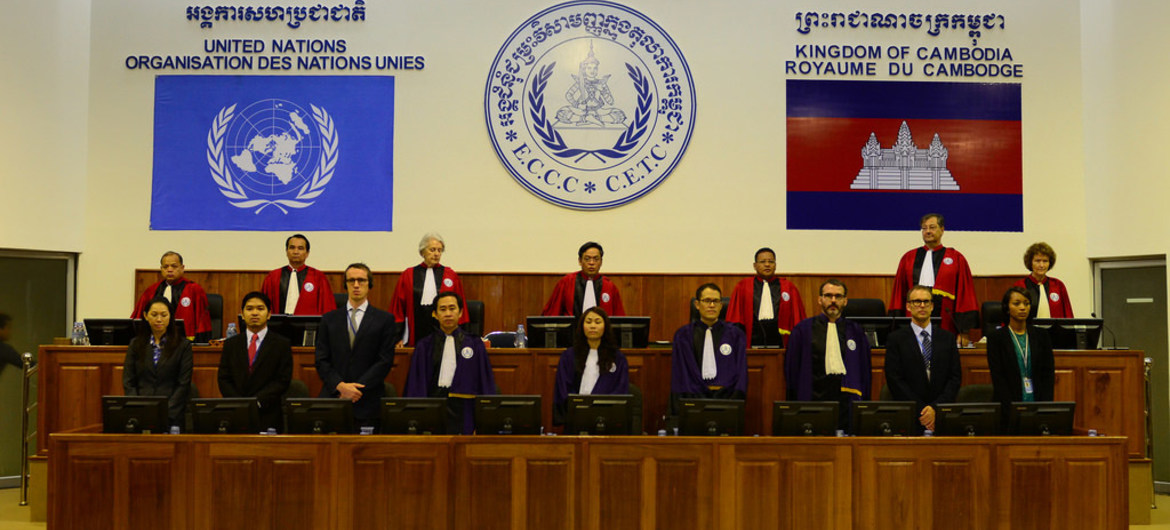 THE GENOCIDE VERDICT OF THE UN BACKED CAMBODIA COURT AND THE 1915 EVENTS
THE GENOCIDE VERDICT OF THE UN BACKED CAMBODIA COURT AND THE 1915 EVENTS
Mehmet Oğuzhan TULUN 30.11.2018 -
 TÜRKİYE’S MEDIATION IN THE UKRAINE-RUSSIA WAR
TÜRKİYE’S MEDIATION IN THE UKRAINE-RUSSIA WAR
Mehmet Oğuzhan TULUN 23.09.2024 -
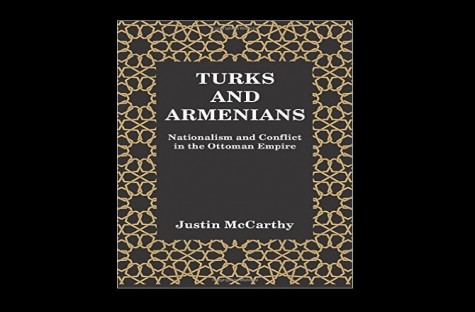 CHAPTER BY CHAPTER SYNOPSIS AND REVIEW OF TURKS AND ARMENIANS: NATIONALISM AND CONFLICT IN THE OTTOMAN EMPIRE BY JUSTIN MCCARTHY - 5
CHAPTER BY CHAPTER SYNOPSIS AND REVIEW OF TURKS AND ARMENIANS: NATIONALISM AND CONFLICT IN THE OTTOMAN EMPIRE BY JUSTIN MCCARTHY - 5
Mehmet Oğuzhan TULUN 22.10.2015 -
 MEDDLING IN TURKISH-ARMENIAN RELATIONS: PROPOSED AMENDMENTS ON THE EUROPEAN PARLIAMENT RESOLUTION ON 2014 COMMISSION PROGRESS REPORT ON TURKEY
MEDDLING IN TURKISH-ARMENIAN RELATIONS: PROPOSED AMENDMENTS ON THE EUROPEAN PARLIAMENT RESOLUTION ON 2014 COMMISSION PROGRESS REPORT ON TURKEY
Mehmet Oğuzhan TULUN 03.05.2015 -
 GENOCIDE ALLEGATIONS, PROPAGANDA MOVIES, AND A 90-MILLION-DOLLAR FIASCO
GENOCIDE ALLEGATIONS, PROPAGANDA MOVIES, AND A 90-MILLION-DOLLAR FIASCO
Mehmet Oğuzhan TULUN 14.07.2020
-
 PATRICK DEVEDJIAN: A NEO-FASCIST WHO WAS A LIFE-LONG SUPPORTER OF TERRORISM
PATRICK DEVEDJIAN: A NEO-FASCIST WHO WAS A LIFE-LONG SUPPORTER OF TERRORISM
Maxime GAUIN 02.04.2020 -
 THE 16TH BRICS SUMMIT REGARDING CHINA AND THE GLOBAL SOUTH
THE 16TH BRICS SUMMIT REGARDING CHINA AND THE GLOBAL SOUTH
Seyda Nur OSMANLI 26.12.2024 -
 ARAKAN AND THE PLIGHT OF THE ROHINGYA: CONFLICT UNDER AN UMBRELLA OF DEFINITIONS
ARAKAN AND THE PLIGHT OF THE ROHINGYA: CONFLICT UNDER AN UMBRELLA OF DEFINITIONS
Teoman Ertuğrul TULUN 09.10.2017 -
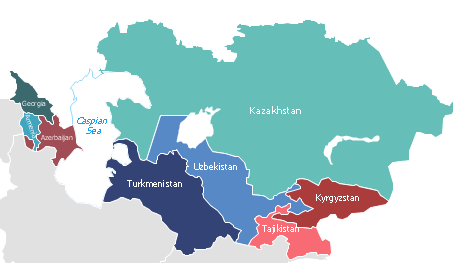 A QUARTER OF A CENTURY OF INDEPENDENCE OF CENTRAL ASIAN AND SOUTH CAUCASUS COUNTRIES: AN ECONOMIC SNAPSHOT AND PROSPECTS FOR THE FUTURE
A QUARTER OF A CENTURY OF INDEPENDENCE OF CENTRAL ASIAN AND SOUTH CAUCASUS COUNTRIES: AN ECONOMIC SNAPSHOT AND PROSPECTS FOR THE FUTURE
Teoman Ertuğrul TULUN 14.12.2016 -
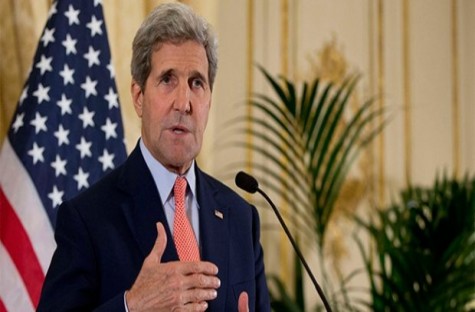 US SECRETARY OF STATE JOHN KERRY’S VISIT TO FIVE CENTRAL ASIAN COUNTRIES
US SECRETARY OF STATE JOHN KERRY’S VISIT TO FIVE CENTRAL ASIAN COUNTRIES
Hazel ÇAĞAN ELBİR 10.11.2015
-
25.01.2016
THE ARMENIAN QUESTION - BASIC KNOWLEDGE AND DOCUMENTATION -
12.06.2024
THE TRUTH WILL OUT -
27.03.2023
RADİKAL ERMENİ UNSURLARCA GERÇEKLEŞTİRİLEN MEZALİMLER VE VANDALİZM -
17.03.2023
PATRIOTISM PERVERTED -
23.02.2023
MEN ARE LIKE THAT -
03.02.2023
BAKÜ-TİFLİS-CEYHAN BORU HATTININ YAŞANAN TARİHİ -
16.12.2022
INTERNATIONAL SCHOLARS ON THE EVENTS OF 1915 -
07.12.2022
FAKE PHOTOS AND THE ARMENIAN PROPAGANDA -
07.12.2022
ERMENİ PROPAGANDASI VE SAHTE RESİMLER -
01.01.2022
A Letter From Japan - Strategically Mum: The Silence of the Armenians -
01.01.2022
Japonya'dan Bir Mektup - Stratejik Suskunluk: Ermenilerin Sessizliği -
03.06.2020
Anastas Mikoyan: Confessions of an Armenian Bolshevik -
08.04.2020
Sovyet Sonrası Ukrayna’da Devlet, Toplum ve Siyaset - Değişen Dinamikler, Dönüşen Kimlikler -
12.06.2018
Ermeni Sorunuyla İlgili İngiliz Belgeleri (1912-1923) - British Documents on Armenian Question (1912-1923) -
02.12.2016
Turkish-Russian Academics: A Historical Study on the Caucasus -
01.07.2016
Gürcistan'daki Müslüman Topluluklar: Azınlık Hakları, Kimlik, Siyaset -
10.03.2016
Armenian Diaspora: Diaspora, State and the Imagination of the Republic of Armenia -
24.01.2016
ERMENİ SORUNU - TEMEL BİLGİ VE BELGELER (2. BASKI)
-
AVİM Conference Hall 24.01.2023
CONFERENCE TITLED “HUNGARY’S PERSPECTIVES ON THE TURKIC WORLD"









